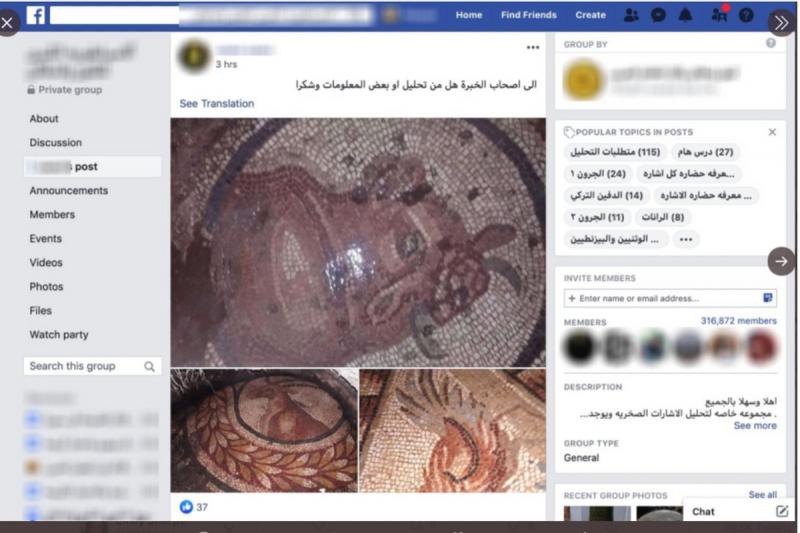What’s Thriving Now? Online Antiquities Trafficking

Mosaics posted on a Facebook antiquities trafficking group. Image retrieved from theartnewspaper.com, courtesy there of ATHAR Project.
There is a long history of illicit trade thriving during times of crisis, and the antiquities market is no exception. As reported by The Art Newspaper, the Antiquities Trafficking and Heritage Anthropology Research Project (ATHAR) is tracking a spike in posts of more than 120 Facebook groups, each with known ties to trafficking and thousands of followers. Historic sites in the Middle East and North Africa are particularly vulnerable during the coronavirus crisis, as evidenced by photos of illicit excavation and in-situ objects, posted by the looters themselves to prove the items’ authenticity. Capitalizing on the pandemic, these black market groups are also trading Personal Protective Equipment (PPE), antibacterial gel and Covid-19 test kits.
While Facebook has removed some of these accounts, ATHAR promotes stronger regulation of the online antiquities trade, along with the preservation of data in social media posts. According to ATHAR co-director Katie Paul, information in the posts such as date and time stamps provide crucial provenance information that may eventually allow repatriation. In the cases of Syria, Yemen, Iraq and Libya, moreover, “this content has more importance: it is evidence of war crimes.”
In the absence of effective international regulation, some organizations are stepping in to provide assistance. The International Alliance for the Protection of Heritage in Conflict Areas for instance, is offering emergency funding for the protection of cultural heritage sites.
For more on this story, read here.
UPDATE, June 24, 2020: Facebook and Instagram have banned antiquities trading on their platforms, in large measure due to the efforts of ATHAR. Read more here.